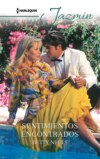Loe raamatut: «The Little Dragon»
“Did you miss me?”
She stared at him blankly. “Yes, I did,” and added quickly, “we all did.”
“You passport has been found. The police telephoned this morning…. You’ll have it back very shortly.”
She was conscious of bitter disappointment because now she was free to go back to England, back to her lonely life. She faltered, “Oh, good.”
“Excellent.” Jeroen was leaning over the end of the bed, watching her while she fiddled with the sheets. “Now you can go back to England.”
“So I can.” Her voice was very bright.
“But I’d like you to come back here, Constantia—it has occurred to me that it might be a very good idea if we were to marry.”
About the Author
Romance readers around the world were sad to note the passing of BETTY NEELS in June 2001. Her career spanned thirty years, and she continued to write into her ninetieth year. To her millions of fans, Betty epitomized the romance writer, and yet she began writing almost by accident. She had retired from nursing, but her inquiring mind still sought stimulation. Her new career was born when she heard a lady in her local library bemoaning the lack of good romance novels. Betty’s first book, Sister Peters in Amsterdam, was published in 1969, and she eventually completed 134 books. Her novels offer a reassuring warmth that was very much a part of her own personality. She was a wonderful writer, and she will be greatly missed. Her spirit and genuine talent will live on in all her stories.
The Little Dragon
Betty Neels

MILLS & BOON
Before you start reading, why not sign up?
Thank you for downloading this Mills & Boon book. If you want to hear about exclusive discounts, special offers and competitions, sign up to our email newsletter today!
Or simply visit
Mills & Boon emails are completely free to receive and you can unsubscribe at any time via the link in any email we send you.
CONTENTS
CHAPTER ONE
CHAPTER TWO
CHAPTER THREE
CHAPTER FOUR
CHAPTER FIVE
CHAPTER SIX
CHAPTER SEVEN
CHAPTER EIGHT
CHAPTER NINE
CHAPTER ONE
IT WAS starting to snow; the feathery flakes fell soundlessly in a kind of slow motion, turning the old-fashioned gabled houses lining the canal into a painting by Pieter de Hoogh.
The girl at the window stood quietly, staring down at the people in the streets below as they bustled to and fro over the narrow arched bridge in front of the house, intent on getting home before the weather worsened. She was a pretty girl, small and slim with nut-brown hair and wide grey eyes heavily fringed. Her nose turned up the merest trifle and her mouth was too wide, although it curved enchantingly. She looked happy too, which was surprising, for Constantia Morley, twenty-six years old and an orphan for twenty of those years, hadn’t a great deal to be happy about.
She had been brought up by an aunt, unmarried and straitlaced, who had tried in vain to make Constantia straitlaced too and quite failed; but she had been kind to her niece after her fashion, and educated her well and raised no objection when Constantia evinced a desire to become a nurse. She had died a year after her niece had taken her finals, and because she had overlooked the fact that the will she had made many years earlier held no provision for Constantia, she had left her nothing at all. The modest amount she had left went to various charities, and the house to some distant relation Constantia had never heard of, who, taking possession of it with almost indecent haste, couldn’t wait to show Constantia the door.
From then on Constantia had lived at the hospital where she worked, on the fringe of London, with plenty of friends with whom to spend her free time but no home or family to visit. But she wasn’t sorry for herself; self-pity wasn’t going to help her to make her way in life, and if she were lucky one day she would marry and have a family of her own. Indeed, she had had several proposals during the last few years, but although she had liked the proposers well enough, none of them had swept her off her feet, and she wanted to be swept off her feet…
By the time she had reached her twenty-sixth birthday she was beginning to wonder if she was expecting too much of life, and egged on by a restlessness she couldn’t understand, she gave up her post as Sister on the medical wards, and went into private nursing. She had been told at the time that it wasn’t the life for her; she was a good nurse and used to hard work and the pressures of a busy ward; she would be bored. But she hadn’t been bored, although she was willing to concede the fact that life wasn’t all roses.
She had had a variety of patients during the last six months, spending the first few weeks in a Scottish castle miles from anywhere, followed by a mercifully brief period in a remote Welsh cottage with no telephone, a very sick patient and only a deaf old woman for company. Then there had been a wholesale grocer in the Midlands who worried unceasingly about his money, and then a small spoilt girl in Bournemouth and a charming old lady in a London flat. And now here she was in Holland with what she had to admit was the worst patient of the lot.
She turned away from the window at last; her sharp eyes had seen Doctor Sperling’s Renault coming over the bridge. He would be at the house in a few moments now and she must go down and meet him in the hall. It was one of her patient’s little foibles that Constantia should always be waiting for the doctor; she had to wear uniform too, which, when she considered how little nursing there was to do, seemed ridiculous. She suspected that she was a prestige symbol and that her cap and apron were needed to substantiate her patient’s boasting.
She reached the dark hall just as Nel, the elderly maid, opened the door and the doctor entered.
He was a man of middle age, tall and balding and, Constantia had to admit, as fussy as an old woman. He greeted her with a condescension which made her grit her small even teeth, remarked on the inclemency of the weather: ‘It is, after all, the last day of February,’ he informed her in the manner of someone handing out vital information, and then, divested of his coat and hat: ‘You will lead the way to your patient, nurse?’
He had said that each day for just over a week and she had answered, just as she had done each time he came, ‘Of course, Doctor,’ and led the way upstairs again to her patient’s room.
Mrs Dowling was lying on a day bed drawn up to the old-fashioned stove. She was a thin woman, made even thinner by the diet she had insisted upon keeping to until it was discovered that she was a diabetic. Her hair was grey, curly and short and her features strong, with a perpetual expression of annoyance upon them. Her voice was loud, penetrating and bossy.
She responded to the doctor’s greeting with a languid nod and broke at once into complaint. ‘You really must explain to Nurse, Doctor Sperling, that I am quite capable of compiling my own diet.’ She didn’t look at Constantia as she spoke, indeed she could have been invisible. ‘And you must do something about my headaches.’
Doctor Sperling put his fingertips together and looked wise. He said, in almost perfect English: ‘Dear lady, your condition, unless controlled by insulin, would be cause of those headaches. You must allow me to guide you in the matter. I will discuss your diet with Nurse and see what alternatives there are to the diet I prescribed. And now you must tell me how you feel today, Mrs Dowling.’
His patient spoke at some length, her voice grating unpleasantly on Constantia’s ear. But she had heard it all before, so she felt justified in allowing her thoughts to wander. Tomorrow, she reflected, she would have the half day Mrs Dowling so grudgingly gave her twice a week. She had glimpsed the town briefly already, now she was going to explore it; its churches, museums, old houses, canals and narrow alleys. After all, she might never have the chance to come to Delft again. She was really very lucky, she could have been up to her eyes on Women’s Medical…the Nieuw Kerk first, she decided, and then the Town Hall…
Mrs Dowling had paused for breath; Constantia switched her mind back to her present surroundings, and although she wasn’t required to speak, looked intelligent.
Ten minutes later she was attending Doctor Sperling to the door. The new diet had been discussed, written down and approved by the patient. The insulin doses the doctor had tactfully left until he was alone with Constantia; she listened carefully to his instructions and smiled a goodbye, quite sorry for him because although he was well thought of by his colleagues in the medical profession and had a fashionable practice, he still had to suffer the tiresomeness of patients like Mrs Dowling. And it seemed as though he would have to suffer her for some time yet, for she harboured the notion that her complaint was something she could ignore if she wished, and indeed before the doctor had persuaded her to have a private nurse she had played ducks and drakes with both her diet and her insulin.
She hadn’t liked the idea of a nurse at first, but after the beginnings of a diabetic coma, luckily nipped in the bud by the doctor, she had changed her views and even got a good deal of satisfaction from having a nurse to look after her. She had a number of friends, hard-faced women like herself who were addicted to bridge and the bullying of those they considered beneath them, and as none of them had had a private nurse at any time, she derived a good deal of satisfaction from Constantia’s presence. But not pleasure; she had tried in vain to bully her, but Constantia wasn’t to be cowed. She had learned to show an imperturbable front which quite disconcerted her patient, and although she had a nasty temper upon occasion, she kept it well in check.
The agency for whom she worked had thought that she might be in Holland for two or three weeks, no longer, but already a week had gone by and if Mrs Dowling was going to insist on doing exactly what she liked about her diet, then Constantia could see that she might be there for very much longer. Given a sensible patient, the diabetes could have been controlled within two weeks, diets worked out and the insulin doses adjusted, so that an occasional visit to the doctor would have been quite sufficient. But Mrs Dowling wasn’t sensible, she was also very rich and moreover suffered from the illusion that money would and could smooth her path. Quite why she needed Constantia was a puzzle, and certainly she had said nothing about her leaving. Constantia, who liked to nurse patients who needed all her skill and care, felt impatient when she thought about it—but if she were to go, the chances were that Mrs Dowling would do something silly like eating éclairs for tea and forgetting her insulin, and end up in hospital in a coma.
Constantia went back upstairs and spent the next half an hour persuading her patient that Vienne snitczels just wouldn’t do for her dinner that evening.
‘I sometimes wish that I were back in England,’ complained Mrs Dowling. ‘I could go to one of those health hydros where I’m sure my wishes would be carried out.’
‘Well, there’s no reason why you shouldn’t,’ said Constantia briskly, ‘if you want to.’
Her patient cast her a look of dislike. ‘When I want your opinion I’ll ask for it,’ she snapped. ‘What have you to offer in place of Vienne snitczels?’
Constantia was ready with quite a list; Mrs Dowling rejected first one and then the other and then finally, seeing that Constantia had no intention of ordering the snitczels, graciously allowed that Parma ham cut wafer-thin might do very well. Constantia retired to the kitchen to confer with the cook and on the way back again lingered for a moment at a downstairs window.
The snow was coming down thickly now and it was almost dark. Across the bridge she could see the shops lighted up; it would be pleasant to wrap up warmly and explore—tomorrow she would do just that.
By lunch time the next day the snow had ceased and the sun had come out; it was cold, though. Constantia, already a little late because Mrs Dowling had thought up first one and then the other small task for her to do before she went, hurried along the Wijn Haven, across the bridge and into Oude Langen Dijke, where she turned off to cross the market square in the direction of the Nieuwe Kerk. She paused as she went to turn and stare at the Stadhuis; it looked beautiful in its snowy setting—seventeenth-century Baroque, although there was a small part of it which was much older and no longer open to the public. She shivered as she stood; the wind was cold and her coat, several winters old now, wasn’t quite adequate. She dismissed the coat with a cheerful shrug and continued on her way, and it was as she reached the far side of the market square that she saw Doctor Sperling’s car parked opposite the Nieuwe Kerk. There was another car close by, a shabby little Fiat parked rather carelessly, and its occupant was apparently talking to Doctor Sperling, for she could see that he was talking to someone bending down at his car’s window. She had almost reached it when the doctor turned round, saw her, and raised a dignified hand.
Constantia hadn’t much dignity. She skipped up to the car and said, ‘Hullo, Doctor Sperling,’ with an almost childlike friendliness, and then uttered a surprised ‘Oh,’ as whoever it was on the other side straightened up to look at her over the car’s roof. A very large, tall man with pale hair silvering over the temples, his eyes were blue, and heavy-lidded, his nose high-bridged above a large firm mouth. A nice face, decided Constantia, and smiled widely at him.
He had a nice smile too, she discovered. The arm he stretched over the car’s roof was enormous, so was his hand, but his grip was gentle.
‘Jeroen van der Giessen.’ His voice was deep and placid.
‘Constantia Morley…’ Doctor Sperling’s pedantic voice interrupted her. ‘Miss Morley is nursing Mrs Dowling.’ He poked his head further out of the car window. ‘You have a free afternoon, Nurse?’
‘It’s my half day—I’m exploring, Doctor Sperling.’ She smiled at him, delighted with her freedom; she smiled at the large man, too, rather shyly. ‘I don’t want to miss a minute,’ she explained. ‘Goodbye, Doctor—Mijnheer van der Giessen.’
She crossed the road and went into the Nieuwe Kerk and Doctor Sperling watching her, observed severely: ‘A good nurse, very thorough and conscientious, but one feels that she should take life more seriously.’
‘Why?’ asked his companion, his eyes on Constantia’s small brisk person as it disappeared into the church.
Doctor Sperling coughed. ‘She is twenty-six,’ he remarked severely.
Two lazy blue eyes twinkled down at him. ‘I’m thirty-nine myself and I have the greatest difficulty in taking life seriously.’
The older man examined his nails. ‘I’m not surprised, Jeroen, with three children and those dogs and that great house.’ He sounded faintly envious. ‘And your work.’ He sighed. ‘I must get on, I’ve another patient to visit. We must have an evening together…’
‘Give me a ring.’ The two men shook hands and Doctor Sperling watched the other man insert his giant-like proportions into the Fiat and drive away. He was a good driver; no fiddling with mirrors or gears, no anxious ear cocked for engine noises, just in and away. ‘He could drive a biscuit tin,’ muttered Doctor Sperling, and drove off himself, only rather more sedately.
Constantia, in between a close study of the stained glass windows in the choir, the Royal Burial Vault of the House of Orange and the mausoleum of William of Orange, allowed her thoughts to dwell upon the man she had just met. She had liked him and he had looked at her as though he had known her already…
She paused to gaze at the great organ. He would be married, of course, with children and from the look of his car, not much money. She wondered what he did for a living and what his wife was like, and then dismissed him from her thoughts and concentrated on the organ. But Jeroen van der Giessen popped back into her head again as she made her way down the church to the door once more. It was a pity that just once in a while one met someone one could feel completely at ease with and then never saw again.
She saw him the minute she went through the door; he was striding across the Markt square, his hands in the pockets of his rather deplorable sheepskin jacket. He reached the road at the same time as she did and said at once: ‘Hullo again. How far have you got with the sightseeing?’
‘Just the Nieuwe Kerk,’ she told him happily, aware that she was glad to see him. ‘I’m going over to the Oude Kerk now.’
‘Yes? I’ve an hour to spare, I wondered if you would like to see the Steen—the tower of the Stadhuis, you know. It’s a good deal older than the rest of the building—fifteenth century, it was a small museum but it had to close because of staff difficulties, but I know the curator—if you’re interested we could go there now, and you could explore the Nieuwe Kerk another time.’ He added casually: ‘How many half days do you get in a week?’
‘Two. I’d love to see the Steen, but are you—can you spare the time?’
‘I’ve an hour, as I said. I like to be home at four o’clock for the children. I usually have visits in the afternoon, but I did them early.’
‘You’re a doctor?’ And when he nodded, ‘How many children have you?’
‘Three, two boys and a girl. But they’re not mine, they’re my sister’s—she’s away for a few months and I’ve got them with me.’
It was ridiculous to feel so relieved. When he added: ‘I’m not married,’ Constantia smiled widely. ‘Oh—how do you manage, then?’
He shrugged enormous shoulders. ‘It isn’t for very long—three or four months.’ They were walking across the Markt towards the Raadhuis, not hurrying their steps. ‘And how do you enjoy looking after Mrs Dowling?’
‘You know her?’
‘Oh, yes—not as a friend, though.’
‘Well then, I can tell you, can’t I? I don’t enjoy it at all, but I love being here in Delft, so that makes up for it.’
‘Makes up for what?’
‘Mrs Dowling is rather a difficult patient,’ she said carefully, and listened to his bellow of laughter.
‘My dear young lady, that is the understatement of the year. Does she still change her diet at every opportunity?’
‘Oh, yes.’ Constantia stopped to look up at him and thought what a kind face he had. ‘But I’m sorry for her too. She’s rich, you know, and miserable with it.’
He stared down at her, smiling faintly. ‘You think that being rich makes one miserable?’
‘I don’t know exactly, how should I? I’ve never been rich, but I don’t think wealthy people have much fun…’
‘You wouldn’t marry a rich man?’
She shook her head. ‘They worry about their money, don’t they? When I marry, if my husband wants to worry, then I’d like him to worry about me.’
‘You don’t mind having no money, then?’
‘No.’ She paused and added seriously: ‘Isn’t it funny the way we’re talking, just as though we’ve known each other for years and years.’
He said easily, ‘Oh, I’m a great believer in instant friendship.’ They had reached the Stadhuis and he ushered her up the steps and in through the door to a marble hall; the great staircase faced the door and there were a number of much smaller doors in the walls. Doctor van der Giessen knocked on one of them and poked his head round it to speak to someone in the room beyond. Constantia stood patiently listening to the unintelligible conversation, and wished she could understand just a little of it; if she were to stay much longer she would start to learn.
Her companion opened the door a little wider and an elderly bearded face peered round it at her, smiled, nodded and disappeared again. ‘We can potter,’ her guide informed her.
They climbed the stairs together and he showed her the Council Chamber and waited patiently while she admired the view from its windows, and then the portraits of the members of the House of Orange on its walls before leading her to the Wedding Chamber. Constantia, athirst for information, asked: ‘Does everyone have to get married here?’
‘Oh, yes—it isn’t legal otherwise.’
‘But what about church? I shouldn’t feel married…’
Doctor van der Giessen smiled a little. ‘A number of people are married in church too. A twice tied knot, one might say.’ He put a hand on her arm. ‘Come and see the Steen Tower.’
It seemed that he was a privileged visitor and she was glad of it; the Steen Tower proved to house a small museum, closed for the time being to the public, the contents of which—to do with the law of the land—her companion explained in a leisurely manner. As they were leaving the Stadhuis at length, he asked: ‘Tea? There’s a small teashop just across the Markt.’
He gave her a placid smile and she thought again what a nice man he was and how easy she felt with him. ‘I’d love some, but do you have the time?’
‘Oh, yes. I’ve no surgery until half-past five.’
‘The children?’
‘Playing with friends after school—they’ll be brought home.’
She smiled widely at him. ‘Well then—’ They started to walk across the Markt. ‘What a lovely half day I’m having,’ she told him happily.
He beamed down at her. ‘Yes? And I—it is very pleasant to show one’s home town to someone who is really interested in it.’
They had reached a small corner shop, a pastry cook’s she had thought, but through it was a very small room with tables and chairs, quite empty. They had their tea and Constantia ate a cream cake with real pleasure. ‘For,’ she explained, ‘Mrs Dowling mustn’t have anything like this—I have to eat the same food as she does.’
Her companion looked astonished. ‘But she’s on a diabetic diet, is she not?’
Constantia nodded. ‘Yes—I have sugar in my tea and coffee, of course. But no cake or biscuits or puddings.’
The doctor muttered something in Dutch and she said severely: ‘That sounded rude.’
He laughed. ‘It was. Have another cake—your carbohydrates must be at a very low ebb.’
She speared a second luscious confection. ‘Yes, I thought that too. I’m being greedy. You’ve not eaten anything.’ It occurred to her suddenly that perhaps he hadn’t very much money—three children would cost a lot to feed and he had a dreadful old car. On the other hand, when he had taken off his sheepskin jacket, she had noticed that the grey suit he was wearing was of very fine cloth and most elegantly cut. Of course, being such a size he would have to have his clothes made for him, just as he would have to present a well-tailored person to his patients. Probably he bought a very expensive suit every five years or so. It worried her a little and she said presently: ‘It is kind of you to give me tea—I mean, we’ve only just met, and you didn’t have to…if we’d been old friends or not seen each other for a long time…’
He smiled lazily at her. ‘I hope we’ll soon be old friends, and I have the strangest feeling that I have known you for a very long time.’
‘That’s funny—I felt like that too when we met. Perhaps we’ve met before and haven’t remembered.’ She poured more tea for them both. ‘Do you ever go to London?’
‘Yes—from time to time.’
‘Well, perhaps that’s it? St Anne’s isn’t a very big hospital, but it specialises in deficiency diseases and diabetes and metabolism.’
‘And do you plan to go back there?’
She shook her head. ‘Oh, no, I thought I’d do private nursing for a year because one can really save money, and then I shall go to Canada or New Zealand.’
‘Your family don’t mind?’ he asked.
‘I haven’t a family. I can only just remember my parents. An aunt brought me up; she died a year or two ago. There isn’t anyone else.’
‘No boy-friend?’
‘No.’
He leaned back in his chair and looked at her thoughtfully. ‘I’m surprised. Don’t you approve of us?’
She had to laugh. ‘Of course I do, only I’ve never met anyone I wanted to marry. I expect I shall one day.’
‘I expect you will, too. In the meantime you have Mrs Dowling to contend with.’ He took a pipe from his pocket. ‘Would you mind if I smoked?’
‘Not a bit.’ She savoured the last crumbs of her cake. ‘I should be going.’
‘You have a half day—surely you can stay out as long as you wish?’
‘Oh, yes, of course. I wasn’t going back to Mrs Dowling. There’s an organ recital at the Walloon church—I thought I’d go.’
‘And until then?’ he prompted.
‘Well, I want to look at the shops and learn my way about the town.’ She picked up her gloves and began to put them on. ‘I have enjoyed my afternoon. Thank you very much, Doctor van der Giessen.’
She stifled quick disappointment at his noncommittal, ‘That sounds very pleasant,’ and when she got up he rose to his feet too with no sign of reluctance—and there was no reason why he should do otherwise, she told herself sensibly.
All the same, the rest of her half day seemed flat. Constantia had faced loneliness for several years now, quite cheerfully, too, but now she felt lonely. As she prepared for bed later she decided it was because she hadn’t met anyone—any man—with whom she had felt so relaxed. Probably she would see him again from time to time, but she would have to take care not to go out of her way to do so. He had been kind because she was a stranger in Delft and he had wanted her to see something of it. He would be a very good friend, she thought sleepily; impersonal friendliness among the young men she had known had been a rarity…
She closed her eyes, content with her day, and then opened them again as Mrs Dowling’s bell pinged in her ear. Constantia stifled a yawn, put on her dressing gown and slippers, and went along to the large room at the front of the house. Mrs Dowling always rang when she had had a half day; probably to make her pay for her free time. Constantia made a charmingly naughty face and opened the door.
‘There you are,’ declared her patient, quite unnecessarily. ‘I can’t sleep—I’ll have a cup of tea. What did you do with yourself?’
‘Oh, I had a delightful afternoon,’ Constantia told her happily, and went away to make the tea.
Tasuta katkend on lõppenud.



























